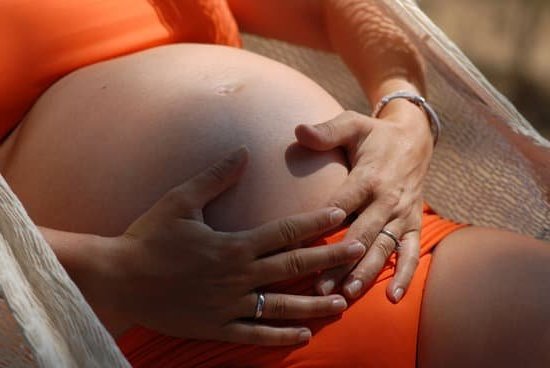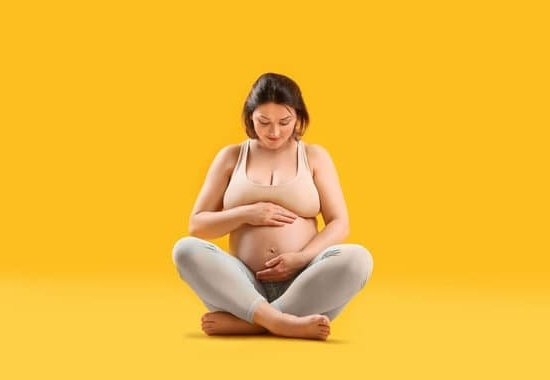What age is geriatric pregnancy? Geriatric pregnancy refers to a pregnancy that occurs in women over the age of 35.
As more women delay childbirth for various reasons such as pursuing a career, finding the right partner, or focusing on other priorities, the topic of geriatric pregnancy has become increasingly relevant. In this article, we will delve into the various aspects of geriatric pregnancy, including the associated risks, fertility challenges, pregnancy complications, medical care and support, as well as emotional and mental health considerations for older mothers-to-be.
Advancements in healthcare and changes in societal norms have made it more common for women to conceive and give birth later in life. However, it’s important to understand the potential risks and challenges that come with geriatric pregnancy. From increased likelihood of certain medical conditions to higher rates of pregnancy complications, there are several factors that older mothers need to consider when embarking on the journey of motherhood.
Despite these challenges, many women are successfully embracing geriatric pregnancy with knowledge and confidence. By being well-informed about the various aspects of geriatric pregnancy and seeking appropriate support and care, older mothers can navigate this unique journey with resilience and positivity. Throughout this article, we will explore the different dimensions of geriatric pregnancy to provide valuable insights for women considering or currently experiencing later motherhood.
Understanding the Risks Associated With Geriatric Pregnancy
Geriatric pregnancy, also known as advanced maternal age pregnancy, is becoming more common as women delay childbearing for various reasons such as career advancement, financial stability, or personal circumstances. While it’s a joyous occasion for many older mothers-to-be, it’s essential to understand the potential risks associated with geriatric pregnancy.
Some of the risks that may arise with advanced maternal age include:
- Increased chance of miscarriage
- Higher likelihood of gestational diabetes
- Greater risk of high blood pressure and preeclampsia
- Potential for chromosomal abnormalities in the baby, such as Down syndrome
- Increased likelihood of preterm birth
According to medical guidelines, a woman who becomes pregnant at the age of 35 or older is considered to have a geriatric pregnancy. This classification is based on the understanding that fertility begins to decline after the age of 35, and the risks mentioned above become more prevalent. However, it’s important to note that every woman’s body is unique, and not all individuals will experience these complications.
As more women choose to have children later in life, fertility treatments are becoming an option for those facing challenges in conceiving naturally. In vitro fertilization (IVF), egg freezing, and other assisted reproductive technologies can help older women achieve their dream of motherhood. It’s crucial for women considering these options to consult with a fertility specialist and thoroughly understand the potential risks and success rates associated with these procedures.
What Age Is Considered Geriatric Pregnancy?
Defining Geriatric Pregnancy
Geriatric pregnancy, also known as advanced maternal age pregnancy, refers to a pregnancy that occurs in women over the age of 35. While this term may sound alarming, it is important to note that many women in this age group go on to have healthy pregnancies and give birth to healthy babies. However, it is also crucial to be aware of the increased risks and challenges associated with pregnancy at an older age.
Age Range for Geriatric Pregnancy
The specific age range considered as geriatric pregnancy can vary slightly depending on the source. In general, most medical professionals consider any pregnancy that occurs in women aged 35 and above as geriatric or advanced maternal age. Some sources may even categorize pregnancies in women over 40 as being of “advanced advanced” maternal age. It’s important for women within these age ranges to be aware of the potential risks and challenges they may face during their pregnancy journey.
Medical Considerations for Geriatric Pregnancy
Women who are considering or currently experiencing geriatric pregnancies should understand that there are certain medical considerations unique to their age group. These may include increased risk of gestational diabetes, high blood pressure, chromosomal abnormalities in the fetus, and a higher likelihood of needing interventions such as cesarean sections. It is essential for women in this age group to work closely with their healthcare providers to monitor and address these potential complications throughout their pregnancy journey.
Fertility Challenges and Options for Geriatric Pregnancy
When it comes to geriatric pregnancy, older mothers may face some fertility challenges due to the natural decline in egg quality and quantity as they age. However, there are several options available for women who wish to conceive later in life. Here are some fertility challenges and options for geriatric pregnancy:
1. Egg freezing: Many women choose to freeze their eggs at a younger age, which can then be used in IVF procedures when they are ready to conceive.
2. In vitro fertilization (IVF): This involves retrieving eggs from the ovaries and fertilizing them with sperm outside of the body before transferring the embryo into the uterus.
3. Donor eggs: For women who are unable to use their own eggs, using donor eggs from a younger woman can be a successful option for geriatric pregnancy.
It is important for older women considering pregnancy to discuss their fertility options with a reproductive specialist to determine the best course of action for their individual situation.
Pregnancy at an older age can come with unique challenges, but with advancements in reproductive technology, many women are able to achieve successful pregnancies well into their 40s and even 50s. It is essential for older mothers to be aware of these options and seek support from healthcare professionals as they navigate the journey of geriatric pregnancy.
Pregnancy Complications for Older Mothers
Increased Risk of Gestational Diabetes and Hypertension
Women of advanced maternal age are at a higher risk of developing gestational diabetes and hypertension during pregnancy. These conditions can pose serious health risks for both the mother and the baby if not properly managed. It is important for older mothers to undergo regular screenings and monitoring to detect and treat these conditions early.
Higher Incidence of Chromosomal Abnormalities
One of the most well-known pregnancy complications for older mothers is the increased risk of chromosomal abnormalities in their offspring, particularly Down syndrome. The chances of having a baby with chromosomal abnormalities significantly rise with maternal age, which is why genetic counseling and prenatal testing are crucial for older expectant mothers.
Risk of Premature Birth and Low Birth Weight
Older women may be at a higher risk of delivering prematurely or having babies with low birth weight. These outcomes can lead to various health complications for the newborn, such as respiratory problems, feeding difficulties, and long-term developmental issues. Healthcare providers will closely monitor the progress of the pregnancy to mitigate these risks.
It is essential for older mothers to be aware of these potential complications and work closely with their healthcare teams to manage any existing health conditions and minimize risks during their pregnancies. By staying informed and seeking proper medical care, older mothers can take proactive steps to promote a healthy outcome for both themselves and their babies.
Medical Care and Support for Geriatric Pregnancy
When it comes to geriatric pregnancy, medical care and support are crucial for both the expectant mother and her developing baby. As women age, they may face certain health challenges that can impact their pregnancy and delivery. This is why it is important for older women considering pregnancy to receive comprehensive medical care and support from healthcare professionals who specialize in geriatric obstetrics.
Medical care for geriatric pregnancy often involves thorough prenatal screenings and tests to identify any potential complications early on. These may include tests for genetic abnormalities, diabetes, high blood pressure, and other conditions that are more common in older pregnant women. Additionally, older expectant mothers may require more frequent monitoring throughout their pregnancy to ensure the health and well-being of both mother and baby.
Support for geriatric pregnancy also extends beyond the medical aspects. It is important for older mothers-to-be to have access to emotional support and encouragement throughout their pregnancy journey. Many women in this age group may experience heightened anxiety or concerns about their ability to carry a healthy pregnancy to term. Having access to counseling services or support groups can provide these women with the necessary emotional support during this significant life transition.
In addition to medical care and emotional support, older pregnant women should also receive nutritional guidance and lifestyle recommendations tailored specifically to their age group. These elements are critical for ensuring a healthy pregnancy outcome for both mother and child, making comprehensive medical care and support essential for geriatric pregnancies.
Emotional and Mental Health Considerations for Older Moms-to-Be
When it comes to geriatric pregnancy, emotional and mental health considerations are especially important for older moms-to-be. This is because the unique challenges and pressures that come with becoming a mother at an older age can have a significant impact on mental well-being. It’s essential for women undergoing geriatric pregnancy to prioritize their emotional and mental health in order to ensure a positive pregnancy experience.
One of the main emotional considerations for older moms-to-be is the societal stigma and judgment that they may face. Unfortunately, there are still outdated attitudes towards pregnancy in older women, which can lead to feelings of shame or inadequacy. It’s crucial for women to surround themselves with supportive and empathetic individuals who can provide encouragement and understanding throughout their geriatric pregnancy journey.
Additionally, older moms-to-be may have concerns about their ability to keep up with the physical demands of pregnancy and motherhood. This could lead to anxiety or feelings of doubt about their capabilities. Seeking out mental health support from professionals, such as therapists or counselors, can offer valuable coping strategies and reassurance during this time.
Furthermore, the decision to undergo geriatric pregnancy may bring about difficult emotions related to family dynamics and personal goals. Women may be grappling with the idea of being at a different life stage compared to their peers or worry about potential impacts on their existing children. Addressing these complex emotions through open communication with loved ones or through support groups for older mothers can provide a sense of empowerment and connection during what age is considered geriatric pregnancy.
| Emotional Considerations | Mental Health Support |
|---|---|
| Societal stigma and judgment | Professional counseling services |
| Physical demands of pregnancy | Therapeutic coping strategies |
| Family dynamics and personal goals | Open communication and support groups |
Success Stories and Encouragement for Geriatric Pregnancy
Pregnancy at an older age, often referred to as geriatric pregnancy, is becoming more common. Many women in their late 30s and 40s are choosing to start or expand their families. Despite the potential risks and challenges associated with geriatric pregnancy, there are numerous success stories that provide hope and encouragement for older moms-to-be.
One of the most important things for women considering geriatric pregnancy is to hear about other women who have successfully navigated this journey. By sharing their experiences, these women can offer support and inspiration to others who may be feeling uncertain or anxious about getting pregnant at an older age.
It’s important for older moms-to-be to surround themselves with a supportive network of family, friends, and healthcare providers. In addition to medical care, emotional support is crucial during this time. Success stories from older mothers who have overcome fertility challenges or pregnancy complications can provide reassurance that it’s possible to have a healthy baby later in life.
| Age Range | Status |
|---|---|
| 35-39 years old | Possible but with increased risks |
| 40-44 years old | More difficult due to declining fertility |
| 45+ years old | Extremely challenging with higher risk of complications |
Conclusion
In conclusion, geriatric pregnancy, or pregnancy at an advanced maternal age, is a topic that requires attention and understanding. While the term “geriatric pregnancy” may sound daunting, it’s important to approach this stage in life with knowledge and confidence. The risks and challenges associated with getting pregnant later in life are real, but with the right information and support, many women successfully navigate through this journey.
It’s crucial for women considering a geriatric pregnancy to understand the potential risks involved, such as higher chances of miscarriage, genetic abnormalities, gestational diabetes, high blood pressure, and preterm birth. However, with proactive medical care and healthy lifestyle choices, many women over 35 can have successful pregnancies and deliver healthy babies.
Support from medical professionals who specialize in managing geriatric pregnancies is essential. These specialists can provide personalized care plans and monitor for potential complications. Emotional and mental health support is also vital during this time, as older moms-to-be may experience unique anxieties about their age and ability to carry a healthy baby to term.
Ultimately, successful geriatric pregnancies do happen every day. By staying informed about fertility options for older moms-to-be as well as possible complications during pregnancy, women can approach this special time in life with confidence and optimism. With the right support network in place, older mothers can look forward to embracing motherhood later in life with knowledge and strength.
Frequently Asked Questions
Is 30 a Geriatric Pregnancy?
A geriatric pregnancy is a term used to describe pregnancies in women over the age of 35. While it does sound outdated, it simply refers to pregnancies in older women and is associated with some increased risks.
Is Pregnancy After 35 High Risk?
Pregnancy after the age of 35 is considered high risk due to potential complications such as gestational diabetes, high blood pressure, and chromosomal abnormalities. However, many women have successful pregnancies after this age with proper monitoring and care.
Is 37 Too Old to Get Pregnant?
At 37, a woman is not too old to get pregnant, but fertility does decline with age. It may take longer to conceive at this age, and the risk of pregnancy complications does increase slightly. However, many women in their late 30s do conceive and have healthy pregnancies.

Welcome to my fertility blog. This is a space where I will be sharing my experiences as I navigate through the world of fertility treatments, as well as provide information and resources about fertility and pregnancy.





